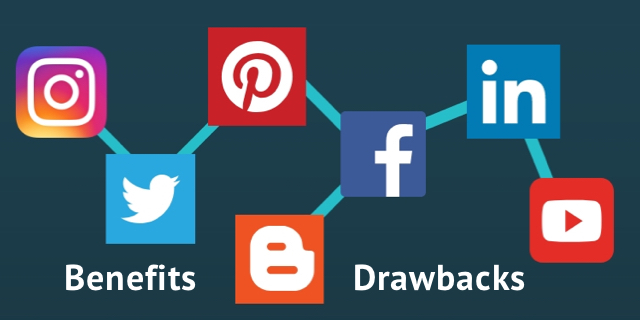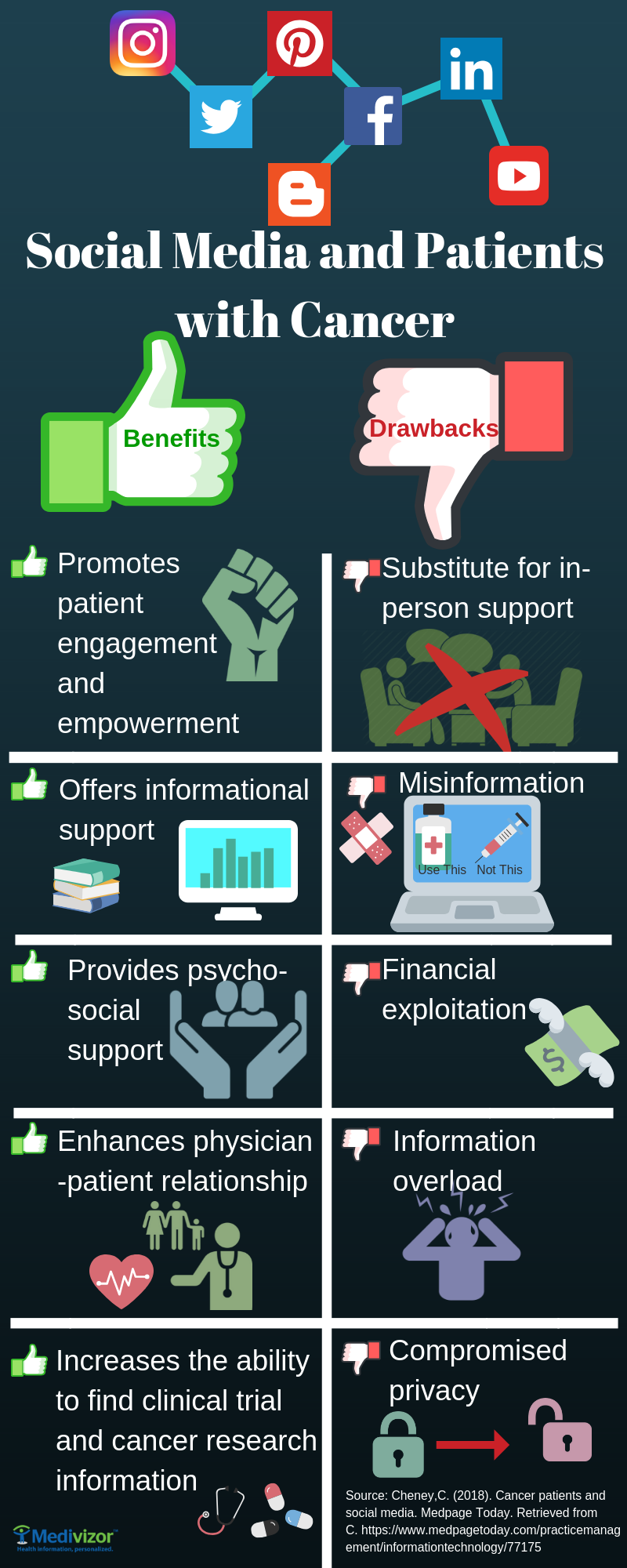A recent review of 170 studies on the use of social media by patients with cancer found both positive and negative impacts. The study, published in The Journal of Oncology Practice, suggests that oncologists discuss social media with their patients and help them to understand the benefits and drawbacks.
Many people are familiar with the problems with companies, like Facebook, sharing private information. A New York Times investigation revealed that Facebook “for years … has struck deals to share the information with dozens of Silicon Valley companies. These partners were given more intrusive access to user data than Facebook has ever disclosed.” Compromised privacy is one of the negative impacts that the review of studies revealed.
However, many people benefit from the psychosocial support that social media provides. One study of BCSM, the Breast Cancer Social Media tweetchat, describes the results of a survey conducted with participants of the chat. The benefits included reduced anxiety: for participants who started the chat with self-reported high anxiety, there was a significant lowering of self-reported anxiety after participation in the chat. Researchers also found that 30% of participants had sought a second opinion or brought up treatment information to their team after being part of the chat.
Benefits and Drawbacks of Social Media
The Journal of Oncology Practice review identified five benefits and five drawbacks of social media. Below is an infographic, created from the summary of the article by Medpage Today
.
The review recommends that oncologists look at cancer-related social media content so that they are familiar with what their patients are seeing. The review also suggests that oncologists ask patients about their involvement on social media and provide guidance as to websites to view. The research team voiced concern about misinformation and financial exploitation by unproven cancer cure claims, especially in the areas of dietary supplements or homeopathic cures that are advertised on social media. Additionally, they note that advertising recommending unnecessary procedures and treatments can put people who are vulnerable at financial risk. The study’s authors suggested that oncologists caution patients to be skeptical of what they may find on social media.
Empowering patients
Although there are “cons” or drawbacks to using social media, patients have been empowered by the information that is available. Many praise the experience of not feeling alone and of being able to communicate with people who are going through similar experiences. Medivizor’s mission is to empower patients and caregivers with reliable summaries of medical journal articles and to connect subscribers who are interested in information on clinical trials to clinical trials occurring near them. We’re glad to be on the positive side of the infographic–a beneficial element of social media for patients with cancer.







“The review recommends that oncologists look at cancer-related social media content so that they are familiar with what their patients are seeing.” This makes no sense. Most patients belong to private groups that oncologists are not able to join.
Thanks for your response. I’m not sure that that is necessarily true. The Angiosarcoma Cancer Awareness Facebook group is a public group that anyone can read and comment. In fact, there are oncologists who specialize in Angiosarcoma who respond to questions there. You can also request to join any private group. You can be a member of a cancer community on Inspire. Membership is free. If you use a hashtag #cancer or #breastcancer or #bcsm for example on twitter you can search and see what patients are saying there about cancer. There are avenues to learn what is being said online. Good luck, Kathleen
Quacks are using social media to target the gullible and while skeptics can do something on platforms like twitter, facebook- the menacing role of whatsapp and telegram in misleading people poses much more danger. People would do better not to rely on social media for decision making in cancer treatment. Blogs are much better.